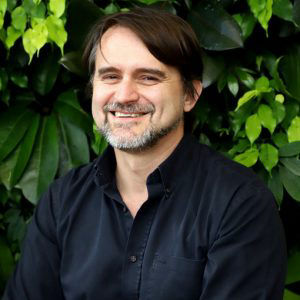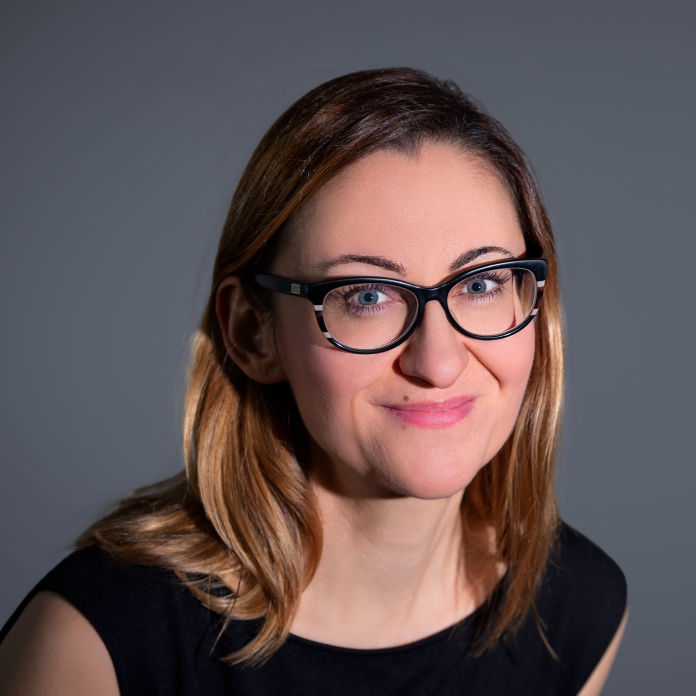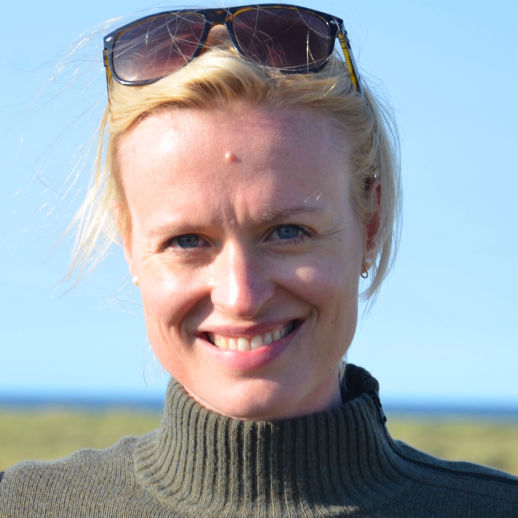Click here to view the book of abstracts.

Andries Coetzee is professor of linguistics at the University of Michigan. His research focuses on variation in speech production and perception, the structure and limits of such variation, and how such variation contributes to sound change. He often relies on data from Afrikaans to inform his research.
The Perception-Production Link:
Three Case Studies
Although phonetic theory assumes a link between perception and production, the exact nature of this link is not well-understood. In this talk, I will present three case studies that investigate the nature of this link, probing questions such as the following: (i) At what level does this link exist? At the level of the speech community, the individual speaker-listener, or both? (ii) What factors mediate the strength of the link? Can the link be relaxed (or even severed) in the context of an ongoing sound change or in socially structured variation? Case Study 1: The first case study focuses on socially neutral variation in the extent of coarticulatory nasalization in American English, and establishes evidence for the perception-production link at the level of both the speech community and the individual speaker-listener. Case Study 2: The second case study also investigates coarticulatory nasalization, but this time in an Afrikaans speech community where the extent of nasalization is socially structured. This study finds results similar to that for American English, showing that social structuredness of variation doesn’t necessarily impact the nature of the perception-production link. Case Study 3: The third case study investigates an ongoing process of tonogenesis in Afrikaans. The results show that there are members of the speech community for whom perception and production are not well-aligned, indicating that the perception-production link can be weakened in the context of an ongoing sound change.

Tamara Rathcke is professor of English Linguistics at the University of Konstanz. Her research focuses on speech prosody, its phonological representations and variability across languages, dialects, and populations, and asks what speech prosody can reveal about human cognition. She often talks to other disciplines before making methodological choices.
Individual Variation *is* the Wild
Even though individual variation is ubiquitous and has been documented in a growing number of studies, research into the nature of phonological contrasts and their phonetic correlates tends to treat participants as a homogenous group. In this talk, I will argue that many conflicting findings in speech production and perception that have been considered controversial may be resolved once individual variation in participants’ performance has been adequately captured. I will focus primarily on controversial findings in rhythm research (such as p-centre, perceptual regularisation, and rhythmic typology) and discuss recent evidence that is starting to shed light on the individual origins of the controversies surrounding speech rhythm. While I recognise that a hypothesis-driven sampling of individual characteristics and traits remains a challenge across many subfields of the study of speech, I will highlight a number of instruments available for capturing individual abilities relevant to prosody research and outline some best practices in considering individual variability by design of production and perception experiments.

Esther de Leeuw is Reader in Experimental Linguistics and Phonetics at Queen Mary University of London. Her research concerns the production, processing, representation, and development of speech sounds in the context of multilingualism and language contact, the cognitive organization of dual phonological systems, and the phonetic and phonological interactions which occur during bilingualism, L1 attrition and L2 acquisition.
Variation in phonetic and phonological L1 attrition
Within the context of bilingualism, L1 attrition is generally defined as change in an individual’s native language, i.e. L1, upon acquisition of an L2 post adolescence, and is most often investigated within the scope of long-term immigration. Research into phonetic and phonological L1 attrition (henceforth attrition) is of great importance to our understanding of the plasticity of native speech as well as how languages and dialects interact and are represented in the mind across the lifespan. My presentation will discuss a number of studies which suggest that different phonetic and phonological variables are not affected equally by the process of attrition, i.e. some phonetic and phonological variables undergo more attrition than others. The results from these studies support the understanding that variation in attrition is modified by sociolinguistic factors.
Information for the Metaphony workshop can be found on this page.
The satellite tutorial has been cancelled.